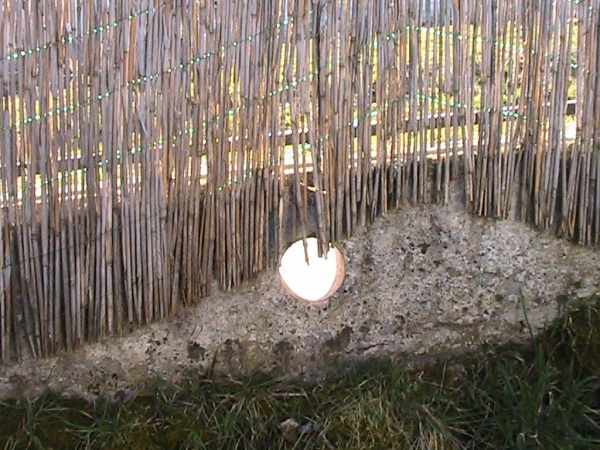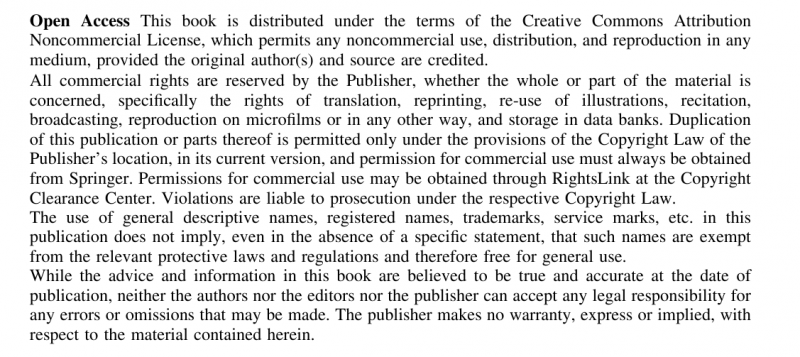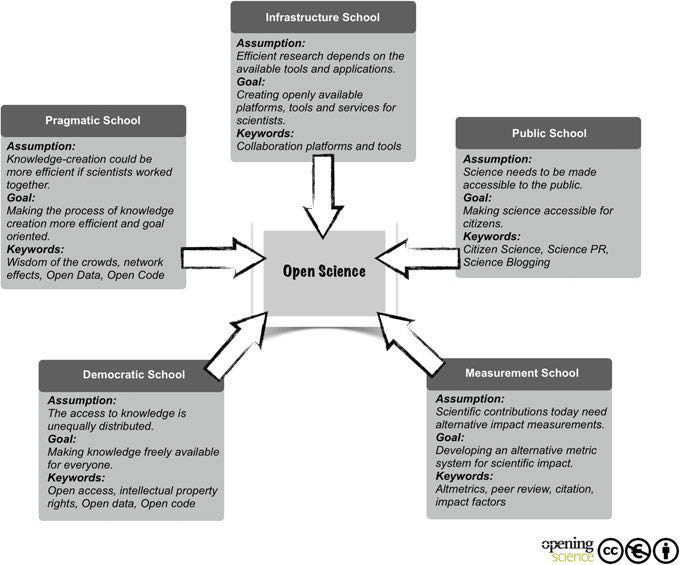Orientierung (tphff2015): Unterschied zwischen den Versionen
Anna (Diskussion | Beiträge) K (→einfach offen: descr) |
Anna (Diskussion | Beiträge) K (→unvorhersehbare Entwicklungen (tphff2015): link) |
||
| (36 dazwischenliegende Versionen desselben Benutzers werden nicht angezeigt) | |||
| Zeile 1: | Zeile 1: | ||
| − | + | = einfach offen = | |
| + | |||
| + | === Ein Projekt aus dem Jahr 2006: === | ||
'''[[Open_Culture_%28LWC%29]]''' | '''[[Open_Culture_%28LWC%29]]''' | ||
| Zeile 6: | Zeile 8: | ||
'''[http://philo.at/ilias/ilias.php?baseClass=ilSAHSPresentationGUI&ref_id=103 Open Culture. Lernobjekt]''' | '''[http://philo.at/ilias/ilias.php?baseClass=ilSAHSPresentationGUI&ref_id=103 Open Culture. Lernobjekt]''' | ||
| + | === [[Zugang zum Wissen (tphff2015)]] === | ||
| + | |||
| + | === [[Deklarationen_(tphff2015)]] === | ||
| + | |||
| + | === [http://www.open-access.net/informationen-fuer-verschiedene-faecher/philosophie/ Open Access in der Philosophie] === | ||
| + | |||
| + | [http://eprints.rclis.org/5463/1/do_open_access_CRL.pdf Kristin Antelman: Do Open-Access Articles Have a Greater Research Impact?] | ||
| + | |||
| + | = Komplikationen = | ||
| + | |||
| + | <br /> <br /> | ||
| + | |||
| + | [[Bild:opG6.jpg| center |600px]] | ||
| + | |||
| + | <br /> <br /> | ||
| + | |||
| + | ---- | ||
::'''"The term ''open access'' may suggest that, like a door, a journal is open or it is not."''' (Willinsky, 2006, p.28) | ::'''"The term ''open access'' may suggest that, like a door, a journal is open or it is not."''' (Willinsky, 2006, p.28) | ||
| − | + | ::'''"Und nun betrachte diese Fälle: a) Jemand versucht eine Türe zu öffnen, indem er mit aller Kraft zieht. b) Er versucht eine Kassentür zu öffnen indem er mehrere Kombinationen versucht. c) Er versucht es indem er die Knöpfe dreht und an der Türe horcht. d) Er versucht, sich an die Kombination zu erinnern. (Und denke an die Mannigfaltigkeit der Möglichkeiten, die mit diesen Worten beschrieben werden.)"''' (L. Wittgenstein, MS 116, 189) | |
| − | + | ||
| − | + | ::'''Offene Türen sind Einladungen und Gelegenheit zum Einbruch.''' | |
| − | + | ||
| − | + | ---- | |
| − | + | <br /> | |
| − | + | ||
| − | |||
| − | |||
| − | </ | ||
| − | + | Die Termini "offen" und "Offenheit" treten in sehr unterschiedlichen Zusammenhängen auf. Eine einfache Gebrauchsweise stammt aus der Objektwelt: offen/geschlossen ist ein Gegensatzpaar. Die Zustände schließen einander aus. Eine Türe oder ein Kasten sind entweder geöffnet oder verschlossen. Wenn man ins Nebenzimmer gehen möchte und die Tür verschlossen vorfindet, ergibt sich eine einfache Reaktion: sie sollte offen sein. | |
| − | + | Doch der Gebrauch der Termini ist vielförmig. Es kann vorkommen, dass das Nebenzimmer unzugänglich ist, obwohl die Türe offen steht. (Es ist überfüllt oder es brennt.) "Offen" ist in diesem Fall nicht das Gegenteil von "geschlossen". Offen kann etwas auch relativ zu Umgebungsbedingungen sein: Die Straße ist offen für Fahrzeuge mit Schneeketten. Die Brücke ist offen für Fahrzeuge unter 1,5 Tonnen. | |
| + | Derartige Modifikationen sind auch für "open access" zu berücksichtigen. Er ist nicht "einfach wünschenswert", sondern ''bezogen'' auf jeweils bestimmte Umstände. | ||
| − | + | <br /> | |
| − | + | = Beispiele = | |
| − | + | === Unerwünschte Nebenwirkungen === | |
| − | + | '''Beiträge zur Rubrik "Großartige Sammlungen" aus Philosophie auf iTunes U''' | |
| − | ... | + | Präsentation und Diskussion eines Dokumentarfilms an der [http://www.uvigo.es/ Universidade de Vigo, Spanien]. |
| − | + | Abgerufen 18.3.2015. Hochgeladen 2009. | |
| − | ... | + | <gallery> |
| + | Datei:vigo1.png | ||
| + | Datei:vigo2.png | ||
| + | Datei:vigo3.png | ||
| + | Datei:vigo4.png | ||
| + | Datei:vigo5.png | ||
| + | Datei:vigo6.png | ||
| + | </gallery> | ||
| − | + | === [[unvorhersehbare Entwicklungen (tphff2015)]] === | |
| − | + | ==== [[Abkassieren (tphff2015)]] ==== | |
| − | + | ==== [[Zielgruppenwerbung (tphff2015)]] ==== | |
| − | + | ==== [[Verlagsprobleme (tphff2015)]] ==== | |
| − | + | ==== [[Postwurfsendungen (tphff2015)]] ==== | |
| − | + | === [[unterlaufene Regeln (tphff2015)]] === | |
| − | : | + | Das Geschäftsmodell der "One Click Hoster". Vgl. aus einem anderen Bereich [http://www.spiegel.de/wirtschaft/unternehmen/uber-urteil-gericht-verbietet-uber-deutschlandweit-a-1024214.html Uber in Deutschland verboten] |
| − | + | === offene Wissenschaft === | |
| − | :: | + | Benedikt Fecher, Sascha Friesicke: OPen Science: One Term, Five Schools of Thought. |
| − | + | in: Bartling, Sönke, Friesike, Sascha (Eds.) Opening Science. The Evolving Guide on How the Internet is Changing Research, | |
| + | Collaboration and Scholarly Publishing, Heidelberg 2014. | ||
| + | [[Bild:Springer-legalia.png| center| 800px]] | ||
| + | <div align="right"> | ||
| + | Rechtliche Information von "Springer Open" | ||
| + | </div> | ||
| − | [[Bild:Fecher-friesicke1.png|800px| center]] | + | [[Bild:Fecher-friesicke1.png|800px|center]] |
| + | |||
| + | <div align="right"> | ||
| + | Seite 19f. | ||
| + | |||
| + | [http://www.e-learning.tu-darmstadt.de/openlearnware/lehrmaterial_veroeffentlichen/lizenzen_im_ueberblick/index.de.jsp Creative Commons Symbole] | ||
| + | </div> | ||
[[Bild:Fecher-friesicke2.png|800px|center]] | [[Bild:Fecher-friesicke2.png|800px|center]] | ||
| − | |||
| + | == Open Access: Beispiele zum status quo == | ||
| + | |||
| + | '''Online Umfrage zum philosophischen Publizieren''' [https://www.umfrageonline.com/s/92d3d84 von Anne Stukenborg] | ||
| + | |||
| + | <gallery> | ||
| + | Datei:Scrsh3.png | ||
| + | Datei:Scrsh4.png | ||
| + | Datei:Scrsh5.png | ||
| + | Datei:Scrsh6.png | ||
| + | </gallery> | ||
| + | |||
| + | |||
| + | '''[http://sammelpunkt.philo.at Sammelpunkt. Elektronisch archivierte Theorie]''' | ||
| + | |||
| + | '''[http://kollektion.philo.at Kollektion. Metadaten philosophischer Arbeiten in OAI-konformen elektronischen Archiven.] | ||
| + | '''[http://philo.at/ocs2 Open Conference System]''' | ||
---- | ---- | ||
| − | [[Category:Freier Forschungsaustausch. SS | + | [[Category:Freier Forschungsaustausch. SS 2015]] |
Aktuelle Version vom 8. Juni 2015, 09:10 Uhr
Inhaltsverzeichnis
einfach offen
Ein Projekt aus dem Jahr 2006:
Zugang zum Wissen (tphff2015)
Deklarationen_(tphff2015)
Open Access in der Philosophie
Kristin Antelman: Do Open-Access Articles Have a Greater Research Impact?
Komplikationen
- "The term open access may suggest that, like a door, a journal is open or it is not." (Willinsky, 2006, p.28)
- "Und nun betrachte diese Fälle: a) Jemand versucht eine Türe zu öffnen, indem er mit aller Kraft zieht. b) Er versucht eine Kassentür zu öffnen indem er mehrere Kombinationen versucht. c) Er versucht es indem er die Knöpfe dreht und an der Türe horcht. d) Er versucht, sich an die Kombination zu erinnern. (Und denke an die Mannigfaltigkeit der Möglichkeiten, die mit diesen Worten beschrieben werden.)" (L. Wittgenstein, MS 116, 189)
- Offene Türen sind Einladungen und Gelegenheit zum Einbruch.
Die Termini "offen" und "Offenheit" treten in sehr unterschiedlichen Zusammenhängen auf. Eine einfache Gebrauchsweise stammt aus der Objektwelt: offen/geschlossen ist ein Gegensatzpaar. Die Zustände schließen einander aus. Eine Türe oder ein Kasten sind entweder geöffnet oder verschlossen. Wenn man ins Nebenzimmer gehen möchte und die Tür verschlossen vorfindet, ergibt sich eine einfache Reaktion: sie sollte offen sein.
Doch der Gebrauch der Termini ist vielförmig. Es kann vorkommen, dass das Nebenzimmer unzugänglich ist, obwohl die Türe offen steht. (Es ist überfüllt oder es brennt.) "Offen" ist in diesem Fall nicht das Gegenteil von "geschlossen". Offen kann etwas auch relativ zu Umgebungsbedingungen sein: Die Straße ist offen für Fahrzeuge mit Schneeketten. Die Brücke ist offen für Fahrzeuge unter 1,5 Tonnen.
Derartige Modifikationen sind auch für "open access" zu berücksichtigen. Er ist nicht "einfach wünschenswert", sondern bezogen auf jeweils bestimmte Umstände.
Beispiele
Unerwünschte Nebenwirkungen
Beiträge zur Rubrik "Großartige Sammlungen" aus Philosophie auf iTunes U
Präsentation und Diskussion eines Dokumentarfilms an der Universidade de Vigo, Spanien.
Abgerufen 18.3.2015. Hochgeladen 2009.
unvorhersehbare Entwicklungen (tphff2015)
Abkassieren (tphff2015)
Zielgruppenwerbung (tphff2015)
Verlagsprobleme (tphff2015)
Postwurfsendungen (tphff2015)
unterlaufene Regeln (tphff2015)
Das Geschäftsmodell der "One Click Hoster". Vgl. aus einem anderen Bereich Uber in Deutschland verboten
offene Wissenschaft
Benedikt Fecher, Sascha Friesicke: OPen Science: One Term, Five Schools of Thought.
in: Bartling, Sönke, Friesike, Sascha (Eds.) Opening Science. The Evolving Guide on How the Internet is Changing Research, Collaboration and Scholarly Publishing, Heidelberg 2014.
Rechtliche Information von "Springer Open"
Seite 19f.
Open Access: Beispiele zum status quo
Online Umfrage zum philosophischen Publizieren von Anne Stukenborg
Sammelpunkt. Elektronisch archivierte Theorie
Kollektion. Metadaten philosophischer Arbeiten in OAI-konformen elektronischen Archiven.








